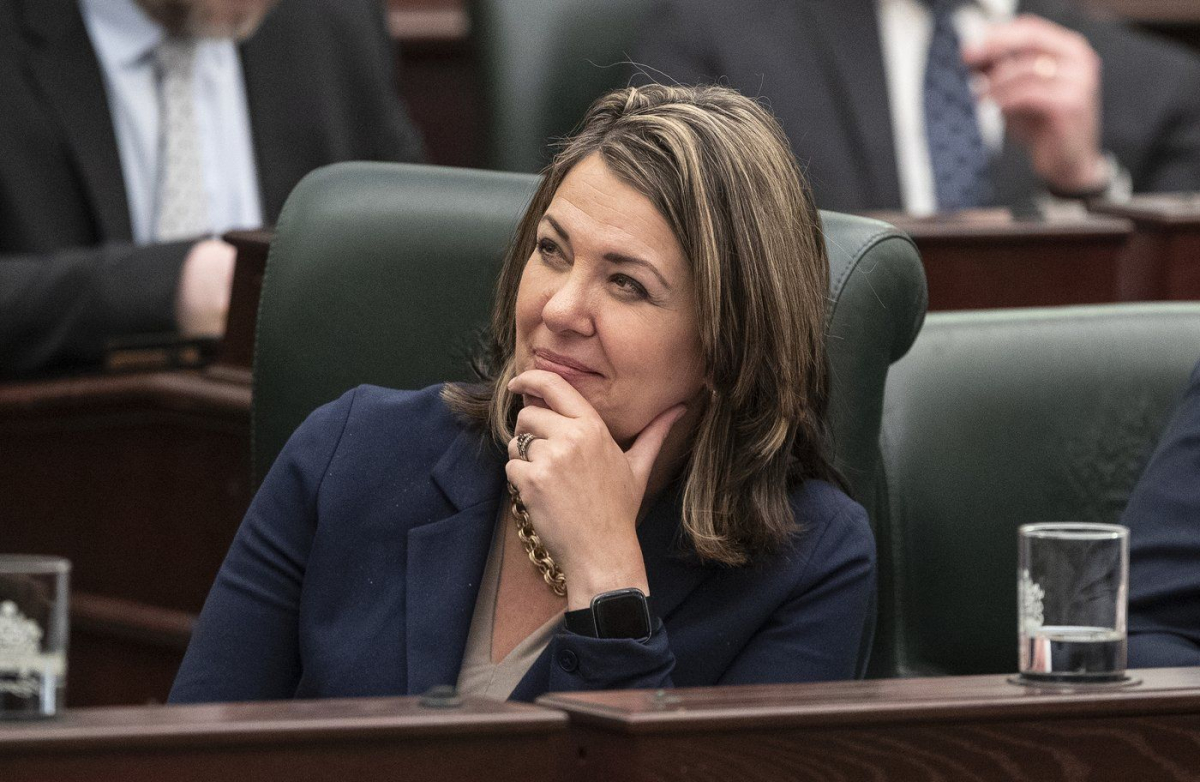Support strong Canadian climate journalism for 2025
Alberta Premier Danielle Smith's last budget before an expected spring election gives strong support to a proposed tax break for energy companies to fulfil their legal cleanup duties but doesn't tell voters how much would be spent on it.
The budget, tabled in the legislature Tuesday, lists "liability management" as a key priority for both Alberta Energy and Alberta Environment and Protected Areas. That phrase is how the United Conservative Party government now refers to a widely criticized proposal previously called RStar.
The program is listed as Alberta Energy's second priority. It commits the department to "collaborate with other ministries ... to maintain and strengthen a balanced, responsible approach to managing the impacts of resource development activities, including the ongoing implementation of liability management activities."
The environment department is to "address reclamation and remediation responsibilities through effective liability management."
But Tuesday's budget sets no money aside for the program.
Finance Minister Travis Toews said that's because RStar is still a plan.
"You're not seeing an Alberta Pension Plan in this budget and you're not seeing a definitive Alberta Police Force in this budget and you're not seeing an RStar program in this budget because none of those policies have been approved," he said Tuesday. "We are reaching out on all of those things and consulting with Albertans."
Finance officials said Tuesday that RStar, if approved, could be funded through the government's contingency funds without having to show up in a budget.
Still, support for the program within the government is strong. One of the idea's originators now works in Premier Danielle Smith's Calgary office.
Smith, who pushed RStar as a business lobbyist before taking over as party leader, boosted it again Saturday on her radio phone-in program. On that show, Smith even mused about extending a similar program to cover municipal environmental liabilities in Medicine Hat, Calmar and Calgary.
"We need a program to incentivize cleaning those up, too," she said on Your Province, Your Premier.
NDP Opposition energy critic Kathleen Ganley said the government has an obligation to come clean on the costs of a program it has every intention of implementing.
"They committed as recently as today (Tuesday) in question period that this program is going forward," she said. "We have a complete lack of transparency.
"They don't want to put numbers before Albertans. They've left it out in the hopes they won't have to answer questions on this program before they go to an election."
A $100-million pilot program has been proposed through Alberta Energy and meetings held with stakeholders. The department now says any decision won't come until the fall, months after Albertans vote.
RStar would give companies royalty credits to apply against new oil production for cleaning up old well sites, something they are already legally obliged to do. Those credits could also be traded or sold, giving old and idle wells a potential value they wouldn't have without the break from taxpayers.
Critics say it rewards companies that don't live up to their obligations and penalizes those who do. They say it violates the polluter-pay principle, especially egregious when energy companies are making record profits.
It has been widely opposed by economists, rural municipalities, financial analysts, provincial bureaucrats and former members of Smith's own party.
This report by The Canadian Press was first published Feb. 28, 2023.





Comments
The "balanced, responsible approach" to dealing with inactive wells is to enforce existing rules. Make companies clean up wells on their own dime, as per longstanding agreement. Stiff penalties for non-compliance.
Sticking Albertans with the costs is an unjustified violation of the polluter-pay principle — and a blatant corporate giveaway by Alberta's lobbyist-turned-premier without a mandate: Danielle Smith.
As UofA energy economist Andrew Leach notes, "The R-Star subsidy will go mostly to healthy companies with large reclamation liabilities. More than 85% of cleanup liabilities are held by companies in strong financial positions. These companies have a lot of required cleanup work to do and the money to do it."
"Danielle Smith has a big idea to clean up O&G wells." (CBC)
*
Scotiabank notes that the companies that stand to benefit most from the program are CNRL, Cenovus Energy, Paramount Resources and Whitecap Resources. "In their last quarterly reports, those companies recorded a combined net income of nearly $5 billion." (CP, 10-Feb-23)